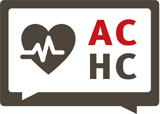During her inaugural lecture on Friday, 22 January, Julia van Weert, professor of Health Communication at the University of Amsterdam (UvA), will launch the new Amsterdam Center for Health Communication (ACHC). The centre aims to improve health by conducting scientific research into effective communication and promoting the implementation of research in the field of health and welfare.
inaugural lecture on Friday, 22 January, Julia van Weert, professor of Health Communication at the University of Amsterdam (UvA), will launch the new Amsterdam Center for Health Communication (ACHC). The centre aims to improve health by conducting scientific research into effective communication and promoting the implementation of research in the field of health and welfare.
The centre, which is staffed by a mix of communication experts from the University of Amsterdam, works together with a large number of other organisations and departments, including public and other health organisations and institutes, patient organisations, the Academic Medical Center as well as other hospitals and universities.
Knowledge sharing between scientific research and practice
‘Making optimum use of the possibilities offered by communication and media is a major challenge for care providers and policymakers,’ explains Van Weert. ‘An enormous amount of research has been undertaken into this very issue, not least by our own centre, but ensuring the research results are actually implemented in practice remains problematic. This implementation is a key priority for the ACHC.’
The centre aims to meet this challenge by, for example, publishing details of all current research projects and research results on its own website http://www.healthcommunication.nl as well as through events, such as meetings, symposiums and conferences for care providers, policymakers and researchers. ‘These events offer a forum for researchers to transfer knowledge, while also providing practitioners with the opportunity to supply researchers with information on practical needs in terms of health communication, for example. Our ultimate aim is to facilitate an integration of scientific researchers, care providers and policymakers.’
100,000 health apps
Van Weert cites an example to illustrate how the centre is filling a gap in health communication. ‘There are currently roughly 100,000 health apps on the market, including calorie meters, sleep apps, apps that count your steps (pedometers) or help you quit smoking. The majority of these apps have been developed by commercial parties and are aimed at the general public, although we really have little idea whether everyone understands these apps and uses them for the purpose for which they are designed. As such, they may fail in their principal aim of encouraging healthier behaviour. Consequently, developing apps based on scientific insights and tailoring them to the needs and abilities of the target group enables you to develop far more effective apps, including for vulnerable groups who are more difficult to reach, such as the elderly or the less educated.’
Testing by patients
Van Weert stresses the importance of real-world testing of scientific research, including by patients and patient organisations. ‘Many sponsors and funding bodies, such as the Netherlands Organisation for Health Research and Development (ZonMW) and the Dutch Cancer Society (KWF Kankerbestrijding), now demand that researchers consult with patients when developing research proposals. They have expanded their scientific committee, which assesses the proposals, with a patient advisory committee that independently reviews the submitted research proposals and hence has a say in deciding whether or not funding should be granted. This ensures that academic researchers remain in touch with real-world practice. Naturally, we will also continue to perform fundamental research, but it remains extremely valuable as well as eminently logical whenever carrying out practice-oriented research to involve the patients for whom it is ultimately intended.’
An opening symposium of the Amsterdam Center for Health Communication will take place in early 2016.